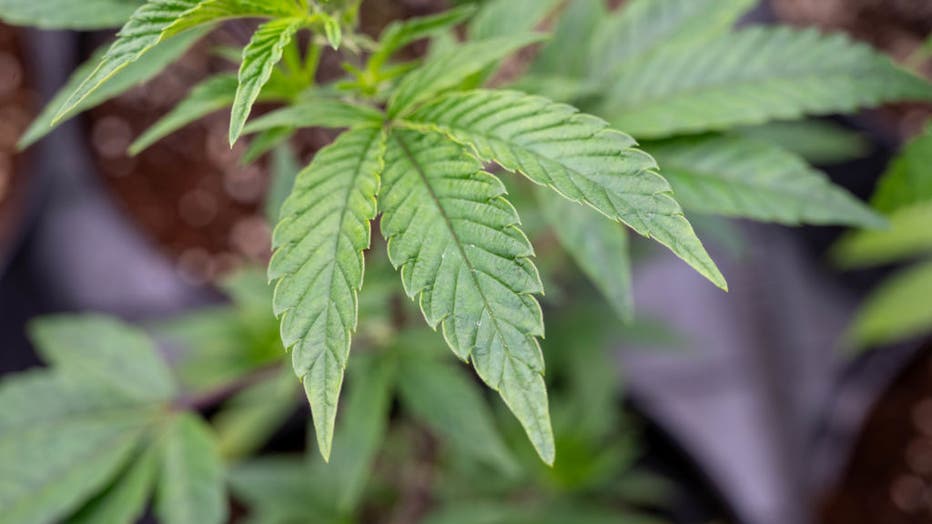Heavy cannabis use linked to impaired working memory, new study finds

Spanish police seize largest ever haul of cannabis
The Spanish Civil Guard said they have seized the largest ever haul of cannabis following a series of raids across Spain.(Credit: Guardia Civil via Storyful)
AURORA, Colo. - A new study suggests that heavy cannabis use can negatively impact working memory.
Researchers at the University of Colorado Anschutz Medical Campus published its findings in the JAMA Network Open.
What we know:
The study revealed that 63% of heavy lifetime cannabis users showed reduced brain activity during a working memory task, while 68% of recent users also demonstrated a similar impact.
Researchers noted that the decrease in brain activity was associated with worse performance on working memory.
RELATED: Older Americans turn to marijuana for better sleep and pain relief: Here's what to know
Working memory is defined as "the ability to retain and use information to perform tasks."

Cannabis plants. Photo: Stefan Sauer/dpa (Photo by Stefan Sauer/picture alliance via Getty Images)
One example is that working memory enables a person to follow instructions that were just given or mentally visualize and manipulate information, like solving a math problem.
Heavy users are defined as young adults who’ve used cannabis more than 1000 times over their lifetime. Using 10 to 999 times was considered a moderate user. Less than 10 times was considered a nonuser.
What we don't know:
The study’s first author, Joshua Gowin, PhD, added more research is needed.
RELATED: Majority of Americans believe marijuana is less harmful than other substances, Gallup poll says
"There are a lot of questions we still need answers to regarding how cannabis impacts the brain. Large, long-term studies are needed next to understand whether cannabis use directly changes brain function, how long these effects last and the impact on different age groups," he said.
Methodology:
Researchers said the study is one of the largest ever to be completed as they look into the effects of cannabis use on over 1,000 young adults aged 22 to 36 using brain imaging technology.
Researchers studied the neural response of participants during a magnetic resonance imaging (MRI) session. They then gave them seven cognitive tasks to complete.
The tasks were meant to test working memory, reward, emotion, language, and motor skills.
Findings:
They found that cannabis had a statistically significant effect on brain function during working memory tasks and believe the impact was unlikely because of a random chance. They saw the impact in both recent and lifetime cannabis users.
Researchers also observed that heavy cannabis use appeared to reduce brain activity in certain areas of the brain (dorsolateral prefrontal cortex, dorsomedial prefrontal cortex and anterior insula). Those areas of the brain are important for cognitive functions such as decision-making, memory, attention and emotional processing.
The other side:
Gowin said that the study abstaining from using cannabis before doing a cognitive task could help to improve performance.
"People need to be aware of their relationship with cannabis since abstaining cold turkey could disrupt their cognition as well. For example, heavy users may need to be more cautious," he said in an online news release.
What's next:
"As cannabis use continues to grow globally, studying its effects on human health has become increasingly important. By doing so, we can provide a well-rounded understanding of both the benefits and risks of cannabis use, empowering people to make informed decisions and fully comprehend the potential consequences," Gowin continued.
The Source: The information in this story came from a study published by researchers at the University of Colorado Anschutz Medical Campus in the JAMA Network Open. The study investigated the effects of cannabis use on working memory in over 1,000 young adults aged 22 to 36 using brain imaging technology. This story was reported from Los Angeles.

